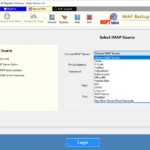10 min read
Performance feedback is a fundamental part of employee development and a key element of any successful performance management.
When conducting performance reviews, the language you use is crucial. It’s not just about delivering the message, but how it’s received.
For instance, instead of saying, “You need to improve your communication,” try this:
“I’ve noticed opportunities to enhance your communication, such as in team meetings, where more active listening could be beneficial.”
This approach is less accusatory and more constructive.
Similarly, rather than saying, “Your work is satisfactory,” opt for this:
“Your contributions to the project have been valuable, particularly your attention to detail in the planning phase.”
Creating a strong and effective review process for both managers and employees can help to establish a thriving feedback culture within your organisation.
HR can play a key role in driving this change by implementing consistent review cycles and supporting managers in conducting them. You can encourage your team to embrace and value feedback by prioritising regular, constructive communication.
To assist you in getting started, in this article we’ve compiled a list of performance review examples designed to motivate and inspire your teams.
Here’s what we cover:
Top 10 performance review feedback examples phrases
Navigating performance reviews can feel like traversing a minefield. But with the right feedback, you can transform these sessions into powerful tools for growth.
A well-structured performance review feedback session provides clarity, encourages growth, and enhances overall team performance.
To illustrate this, consider the diverse areas where targeted feedback can make a real difference.
1. Communications skills feedback phrases
Effective communication is vital for any organisation. Therefore, when providing feedback on communication skills, consider both verbal and written communication.
Highlight specific instances where an employee’s communication has been effective or where there’s room for improvement, and offer suggestions for development, such as attending a workshop or giving them tips for practising active listening.
For example, “Your presentations are clear and engaging, and you effectively convey complex information.”
Alternatively, “While your written reports are informative, there’s room to improve conciseness and clarity.”
2. Teamwork and collaboration feedback phrases
Teamwork and collaboration are essential for achieving common goals. Feedback should focus on an individual’s ability to work effectively with others.
Managers, in collaboration with HR, should organise team-building activities and ask colleagues for feedback.
For example, “Your willingness to assist colleagues and share knowledge has fostered a positive team dynamic.”
Or, “While you contribute effectively to your assigned tasks, there’s an opportunity to engage more actively in team discussions.”
3. Leadership and initiative feedback phrases
Leadership and initiative are crucial for driving innovation and problem-solving. Feedback should focus on their ability to take ownership and lead by example.
Encourage your employees to take on leadership roles or to participate in leadership training to learn how to be a leader.
For example, “Your proactive approach to identifying and addressing potential issues demonstrates strong leadership qualities.”
Another possibility is, “As a leader, you can manage projects, but you should also develop your delegating skills.”
4. Productivity and efficiency feedback phrases
Productivity and efficiency are essential for meeting deadlines and achieving goals. Feedback should focus on their ability to manage time and resources effectively.
Offer suggestions for improvement, such as using time management tools and prioritising tasks.
For example, “Your ability to manage multiple tasks simultaneously has significantly contributed to meeting project deadlines.”
Or, “Your productivity can be improved by streamlining your workflow and reducing distractions.”
5. Adaptability and problem-solving feedback phrases
Adaptability and problem-solving are important for navigating challenges and changes. Participating in problem-solving workshops can develop critical thinking skills and teach structured approaches to tackling challenges.
Employees can enhance their problem-solving abilities and contribute more effectively to the success of their teams by actively participating in collaborative discussions and learning from others.
Feedback should focus on their ability to respond effectively to unexpected situations.
For example, “Your quick thinking and resourcefulness in resolving unexpected challenges have been commendable.”
Or, ” You demonstrate adaptability, but there’s room to enhance your problem-solving skills by taking a more in-depth approach to analysing situations.”
6. Creativity and innovation feedback phrases
Creativity and innovation are necessary for driving business growth, fostering continuous improvement, and maintaining a competitive edge in the market.
Employees who think outside the box contribute to problem-solving, process optimisation, and the development of new products or services.
Feedback should not only recognise their ability to generate fresh ideas but also encourage them to refine and implement those ideas effectively.
Encourage employees to participate in brainstorming sessions, collaborate with diverse teams, or attend industry conferences to expose them to different viewpoints while inspiring innovative thinking.
For example, “Your fresh perspective on how we can improve our processes has been very helpful,” acknowledges their contributions.
Additionally, “While you’re creative, there’s an opportunity to explore new technologies and trends in our industry,” provides direction for further development.
7. Dependability and accountability feedback phrases
Dependability and accountability are fundamental traits that contribute to a strong, trustworthy, and efficient workplace.
Employees who consistently meet their commitments and take responsibility for their actions help foster a reliable team environment where colleagues and managers can confidently rely on them.
Providing feedback on these qualities should highlight their strengths while identifying areas for potential growth.
For example, “Your consistent adherence to deadlines and responsibilities has made you a reliable team member,” reinforces their dependability.
Meanwhile, “Although you’re reliable, there’s an opportunity to enhance your time management skills to better meet all deadlines,” offers constructive guidance for improvement.
8. Customer service and client relations feedback phrases
Good customer service and client relations foster trust, retain customers, and ensure long-term business success.
Employees who excel in these areas contribute to a positive customer experience by actively listening, responding with empathy, and resolving concerns efficiently.
Feedback should highlight their strengths in communication and relationship-building while identifying opportunities for growth.
For example, “Your ability to build rapport with clients and address their concerns effectively has resulted in positive feedback,” reinforces their impact on customer satisfaction.
Meanwhile, “You’re approachable and supportive, but there’s room to strengthen your problem-solving abilities when handling more complex customer challenges,” provides a clear area for development.
9. Professional development and growth feedback phrases
Professional development and growth are key drivers of career advancement and long-term success, benefiting both the employee and the organisation.
Employees who actively pursue learning opportunities and skill development demonstrate adaptability, ambition, and a commitment to excellence.
Feedback in this area should acknowledge the employee’s dedication to continuous improvement while encouraging them to broaden their expertise.
For example, “Your commitment to continuous learning and skill development is evident in your recent certifications,” reinforces their progress.
Meanwhile, “You are dedicated to your professional growth, and there is an opportunity to explore new areas of expertise and broaden your skillset,” provides a roadmap for further advancement.
10. Meeting goals and performance targets feedback phrases
Ensuring employees align with organisational objectives relies heavily on their ability to set and achieve clear performance targets.
Performance feedback in this area should focus on how effectively employees set realistic goals, track their progress, and adjust when needed.
For instance, highlight how well they manage their time, prioritise tasks, and take ownership of their objectives.
To support their development, managers in collaboration with HR can promote the use of goal-tracking tools and set up regular review sessions.
These tools offer a visual snapshot of progress, while consistent reviews create opportunities for adjustments and ongoing support, helping your team stay on course and motivated to reach their performance goals.
It’s possible to foster both individual and organisational success by cultivating a culture of clear goal-setting and continuous feedback.
For example, “Your performance this quarter has not only met but exceeded the set targets, demonstrating exceptional commitment and diligence.”
It’s important to recognise the dedication of each of your employees and the impact of their efforts to encourage the continued maintenance of high performance.
On the other hand, “While you consistently work towards your goals, improving your goal setting by aligning them with the SMART criteria—specific, measurable, achievable, relevant, and time-bound—could significantly boost your success.”
This method provides actionable strategies for growth.
Best practices for delivering performance review feedback
Delivering performance feedback effectively requires careful planning and execution.
The following best practices will help ensure that feedback is constructive, clear, and supportive, enabling employees to understand their strengths and areas for improvement.
- Provide timely and specific feedback. Don’t wait months to address issues or give praise.
- Create a comfortable and private setting for discussions to encourage open and honest communication.
- Focus on behaviour and performance, not personality. Use “I” statements, like “I’ve observed that…” rather than “You always…”
- Balance positive and constructive feedback. Highlight strengths and achievements before discussing areas for improvement.
- Use concrete examples to illustrate your points, helping employees understand the context and impact of their actions.
- Actively listen to the employee’s perspective and encourage them to ask questions.
- Collaboratively develop an action plan for improvement.
- Ensure feedback is consistent and aligned with company goals.
- Document feedback and action plans for future reference.
- Follow up regularly to monitor progress and provide ongoing support.
Effective ways to deliver critical feedback
Delivering critical feedback can be challenging, but it’s a necessary part of employee development and business success.
A well-handled conversation provides employees with valuable insights that help them improve while maintaining morale and motivation.
Start by creating a supportive environment and choosing a private setting that allows for open discussion.
Begin the conversation with constructive feedback that acknowledges strengths before transitioning into areas that need improvement.
Clearly outline specific performance issues using objective observations rather than generalisations or personal critiques.
Frame the discussion around behaviours and their impact on the team or company, helping employees to understand why changes are necessary.
To ensure feedback is actionable, offer practical suggestions and work collaboratively to develop a plan for improvement.
Encourage employees to share their perspectives, address concerns, and ask questions.
Maintain a respectful, professional tone throughout the conversation, reinforcing that the goal is growth rather than criticism.
Document key takeaways and set measurable goals, then follow up regularly to provide support, track progress, and recognise improvements.
Effective ways to deliver positive feedback
For the goal of reinforcing strengths, maintaining motivation, and cultivating a culture of high performance, it’s essential to provide positive performance review feedback.
Taking time to recognise the contributions of your employees will build their confidence and motivate them to continue to excel.
When offering positive feedback, be specific about what the employee has done well and highlight the impact of their efforts on the team or company.
Express appreciation genuinely and avoid vague praise, ensuring that recognition feels meaningful. Encouraging further growth by linking achievements to career development opportunities can enhance engagement and long-term performance.
Consider public recognition when appropriate, such as during team meetings or company-wide announcements, to reinforce a culture of appreciation. However, also provide private feedback to show employees that their efforts are personally valued.
Positive feedback should be delivered promptly and consistently, ensuring that employees are recognised for their hard work in a timely manner.
Follow up by identifying opportunities for continued growth, helping employees stay motivated and aligned with business goals.
How to use performance review feedback effectively
Feedback should be used in a proactive and ongoing manner as part of your performance management strategy.
To effectively guide employee development and ensure progress, it’s important to set clear expectations and provide continuous support.
The following steps will help create a structured path for success and enable employees to achieve their goals:
- Ensure feedback is SMART (Specific, Measurable, Achievable, Relevant, Time-bound) to set clear expectations for employees
- Create an action plan with clear goals and timelines, helping employees understand what success looks like and how to achieve it
- Provide ongoing support, resources, and mentorship to help employees develop the necessary skills and confidence to meet their objectives.
Acknowledging improvements not only boosts morale but also reinforces a positive feedback loop where employees feel valued and motivated to push further.
Performance appraisals can be integrated into everyday work culture rather than confined to periodic evaluations to foster a work environment where employees feel supported, motivated, and encouraged.
An effective feedback system improves more than just individual performance. It strengthens team dynamics, increases productivity, and ensures long-term success.
Humanising HR: the magic of AI in empowering people and processes
Harness the power of AI to boost HR efficiency and engagement, foster smarter decisions, and enhance human-centric processes.

#Top #employee #performance #feedback #phrases #effective #evaluations










